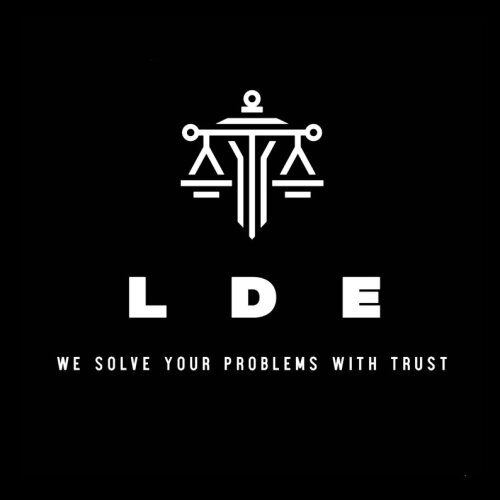Best Merger & Acquisition Lawyers in Pakistan
Share your needs with us, get contacted by law firms.
Free. Takes 2 min.
Or refine your search by selecting a city:
List of the best lawyers in Pakistan
About Merger & Acquisition Law in Pakistan
Merger and Acquisition (M&A) refers to the consolidation of companies or assets through various types of financial transactions. In Pakistan, M&A is a growing field, driven by the country's developing economy and evolving business landscape. The process often involves complex legal and regulatory requirements, including compliance with the Companies Ordinance 1984, Competition Act 2010, and regulations set by the Securities and Exchange Commission of Pakistan (SECP). The primary aim of these laws is to ensure fair competition, protect shareholder interests, and promote economic growth.
Why You May Need a Lawyer
Engaging in M&A activities involves a myriad of legal issues that require careful consideration and expert guidance. Some common situations where you may need legal help include:
- Conducting due diligence to assess the target company's legal, business, and financial risks.
- Negotiating and drafting acquisition agreements to ensure favorable terms.
- Navigating complex regulatory requirements and obtaining necessary approvals from local authorities.
- Resolving potential disputes arising from the M&A process, such as breach of agreement or issues with minority shareholders.
- Advising on tax implications and structuring the deal to minimize taxation liabilities.
Local Laws Overview
In Pakistan, several key laws and regulations are particularly relevant to M&A activities:
- Companies Ordinance 1984: Governs the incorporation, regulation, and winding up of companies in Pakistan and provides a framework for mergers.
- Competition Act 2010: Ensures fair competition in the market by preventing anti-competitive practices such as monopolies and cartels; it also involves pre-merger clearances.
- Securities Act 2015: Regulates the securities market in Pakistan, including disclosures and investor protection during corporate restructuring.
- Pakistan Stock Exchange Regulations: Relevant for listed companies during the M&A process.
Frequently Asked Questions
1. What are the initial steps in an M&A transaction in Pakistan?
The initial steps include identifying a target company, conducting preliminary negotiations, and signing a non-disclosure agreement to facilitate the exchange of confidential information.
2. How does due diligence work in Pakistani M&A deals?
Due diligence involves a comprehensive evaluation of the target company's legal standing, finances, contracts, liabilities, and potential risks. It's a crucial step to making an informed decision.
3. What regulatory approvals are required for M&A in Pakistan?
Obtaining clearance from the Competition Commission of Pakistan (CCP) is essential to ensure the deal does not harm market competition. Further approvals from SECP may also be needed depending on the nature of the merger.
4. Are there any restrictions on foreign entities participating in M&A activities in Pakistan?
While foreign entities are allowed to engage in M&A activities, there are certain sector-specific restrictions and requirements for foreign investment that must be adhered to.
5. How are M&A transactions typically structured in Pakistan?
Common structures include asset purchases, stock purchases, or mergers, each with distinct legal, financial, and tax implications.
6. What is the role of the SECP in M&A transactions?
The SECP oversees compliance with corporate governance standards, protects investor interests, and regulates disclosures during M&A transactions.
7. What types of legal documents are involved in an M&A deal?
Key documents include the letter of intent, due diligence report, acquisition agreement, shareholder agreement, and regulatory filings.
8. What are the tax considerations in M&A transactions?
M&A transactions may involve capital gains tax, income tax considerations, and other regulatory fees that must be evaluated and optimized.
9. How can potential disputes in an M&A deal be resolved?
Disputes can be addressed through negotiation, mediation, arbitration, or litigation, often outlined in the acquisition agreement’s dispute resolution clause.
10. How long does the M&A process typically take in Pakistan?
The timeline varies significantly depending on the complexity of the deal, regulatory requirements, and negotiation issues, but it generally takes several months.
Additional Resources
For additional guidance, consult the following resources:
- The Securities and Exchange Commission of Pakistan (SECP) for regulations and compliance guidelines.
- Competition Commission of Pakistan (CCP) for understanding competition laws and pre-merger approvals.
- Legal firms specializing in corporate law or M&A services for personalized advice.
Next Steps
If you are considering or currently involved in an M&A transaction in Pakistan, here are some suggested next steps:
- Contact a lawyer specializing in M&A to gain expert legal insight and guidance.
- Prepare a comprehensive plan, including conducting due diligence and seeking necessary regulatory approvals.
- Engage with financial advisors to assess the financial viability and implications of the transaction.
- Ensure all legal documents are in order and align with Pakistani regulatory requirements.
- Stay informed about changes in local laws and regulations that may affect your transaction.
Lawzana helps you find the best lawyers and law firms in Pakistan through a curated and pre-screened list of qualified legal professionals. Our platform offers rankings and detailed profiles of attorneys and law firms, allowing you to compare based on practice areas, including Merger & Acquisition, experience, and client feedback.
Each profile includes a description of the firm's areas of practice, client reviews, team members and partners, year of establishment, spoken languages, office locations, contact information, social media presence, and any published articles or resources. Most firms on our platform speak English and are experienced in both local and international legal matters.
Get a quote from top-rated law firms in Pakistan — quickly, securely, and without unnecessary hassle.
Disclaimer:
The information provided on this page is for general informational purposes only and does not constitute legal advice. While we strive to ensure the accuracy and relevance of the content, legal information may change over time, and interpretations of the law can vary. You should always consult with a qualified legal professional for advice specific to your situation.
We disclaim all liability for actions taken or not taken based on the content of this page. If you believe any information is incorrect or outdated, please contact us, and we will review and update it where appropriate.
Browse merger & acquisition law firms by city in Pakistan
Refine your search by selecting a city.

















